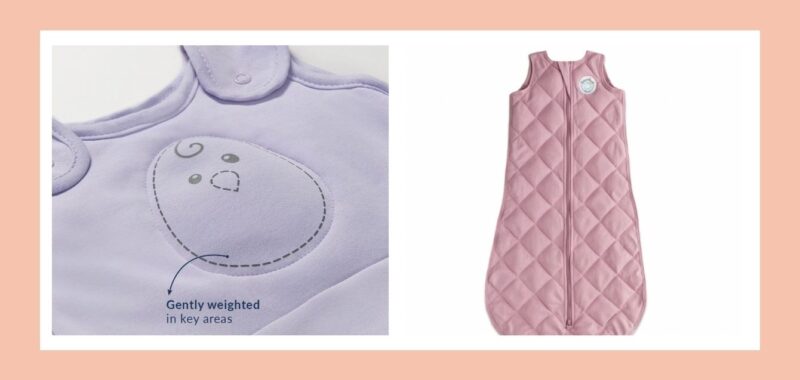With federal data showing that weighted sleep products for infants may have been connected to the deaths of at least five babies, lawmakers in the U.S. are now seeking to ban it. But companies that make the garments say it’s safe and can help babies get better sleep—and help parents by helping fussy babies fall asleep faster.
The debate comes as a growing number of medical experts, safe-sleep advocates and government regulators have cautioned parents and other caregivers against using weighted sleepwear. Many of them say there isn’t definitive proof it’s safe for infants, and they say it could actually get in the way of babies’ ability to breathe, pump blood, and move around freely.
The stakes are simply too high to allow weighted infant sleep sacks and swaddles to stay on the market without evidence that they are safe,” democratic Connecticut State Sen. Richard Blumenthal said in a statement.
The Safeguarding Infants from Dangerous Sleep Act has now been introduced in both the House and the Senate. If passed, it would ban wearable blankets, sleep sacks, and swaddles that contain extra weight “for a purpose other than insulation or decoration” for babies under a year old.
“In today’s world, many consumers believe that if a product is sold it must be safe, especially those for babies. However, this isn’t always the case,” Michelle Barry, founder and president of the nonprofit Safe Infant Sleep, said in a statement. “This legislation is a crucial step in safeguarding our youngest and most precious citizens.”
The proposed law is getting some pushback, though. Manasi Gangan, CEO of Nested Bean, a company that makes and sells weighted infant sleepwear, called it “anti-science.”
“The bill proposed by Senator Blumenthal and [democratic California] Congressman [Tony] Cardenas doubles-down on unreasonable government overreach without any data and does not serve the public’s best interest,” she told NPR. “While our business has suffered due to reckless statements from government officials, our customers — each one a loving parent, grandparent, or caregiver — are standing with us.”
Earlier this year, major American retailers Target, Walmart, Nordstrom, and Babylist announced they would stop selling these products in the interest of safety.
“Exhausted parents shouldn’t have to become part-time product safety regulators, but our current system forces them to by allowing infant products onto the market without evidence they are safe,” said American Academy of Pediatrics President Benjamin D. Hoffman, MD, FAAP.
“We need a proactive approach that keeps infants safe and gives parents the peace of mind they deserve. The American Academy of Pediatrics proudly endorses the Safeguarding Infants from Dangerous Sleep Act and commends Sen. Blumenthal (D-Conn.), Rep. Cardenas (D-Calif.), and Rep. Schrier (D-Wash.) for their leadership.”
According to the Consumer Product Safety Commission, five infant deaths have been associated with weighted sleepwear. They all occurred between 2022 and 2024, and the children who died ranged in age from one to six months old. The CPSC, the Centers for Disease Control and Prevention, and the National Institutes of Health are also among medical agencies that have raised concerns about the safety of weighted infant sleepwear.

